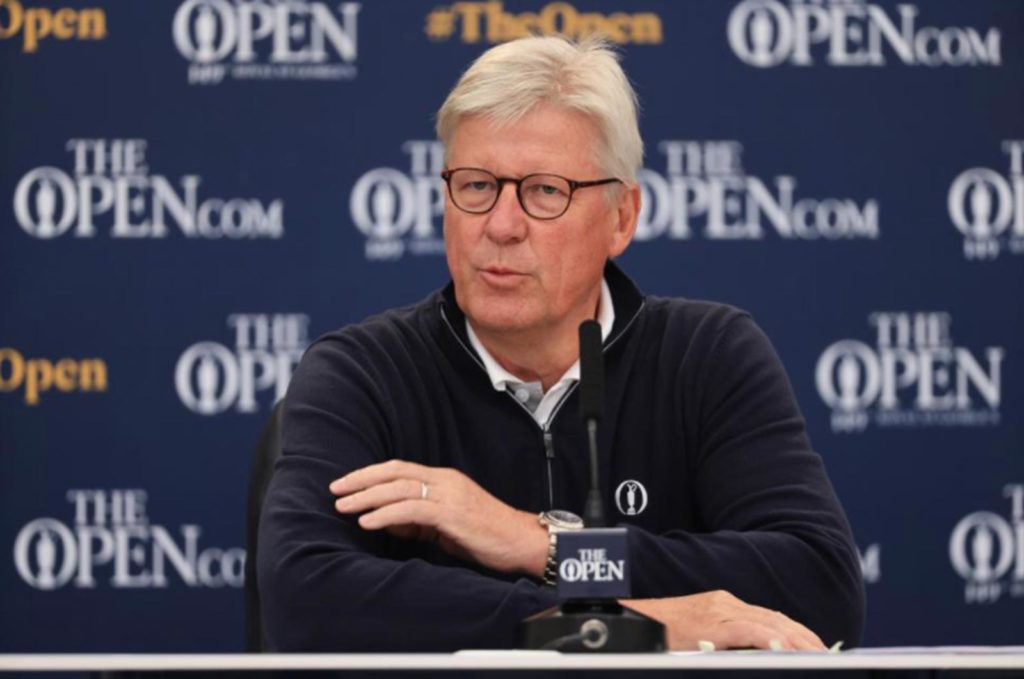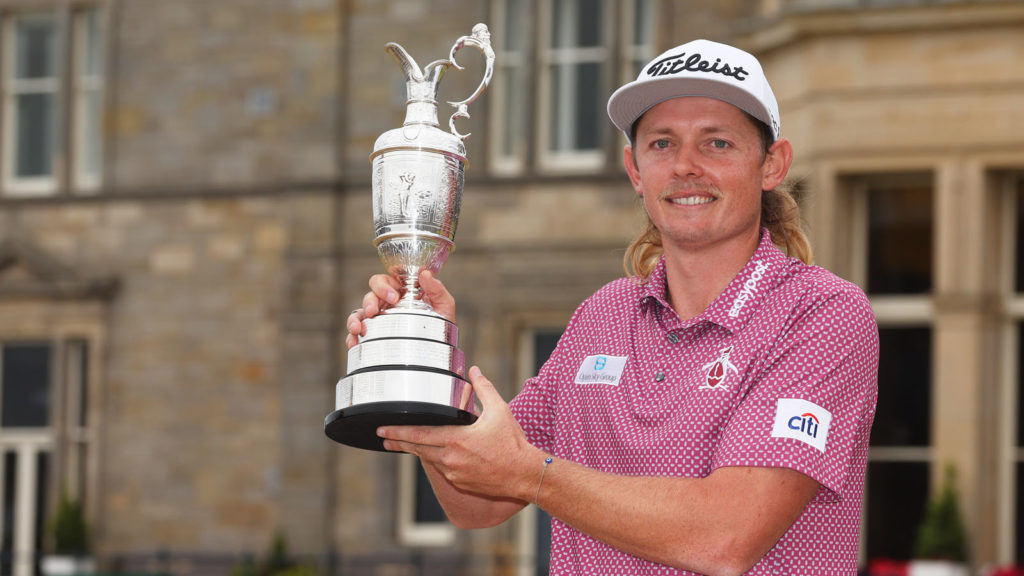Royal and Ancient Golf Club chief executive Martin Slumbers says the governing body will not ban anyone from playing in the Open Championship, including defending champion and world No.3 Cameron Smith.
The Australian won the 150th Open at St. Andrews before joining LIV Golf, triggering a ban from the PGA Tour where he played. On Saturday in Thailand, at the Asia Pacific Amateur, Slumbers said: “The Open needs to set itself aside from what’s going in terms of disagreements and make sure we stay true to our principle, which is to have the best players in the world competing.”
Just what to do with regard to the current conflict in golf is another thing currently occupying Slumbers’ mind. Along with the other three majors, he has obvious decisions to make when it comes to exemptions and qualifying criteria for the Open.
“We’ll go public in January/February with what we are going to do with regard to LIV golfers,” he says. “But if you want a guide, go back to what I said in July. We’re not banning anyone. We are not going to betray 150 years of history and have the Open not be open. The name says it all. And that’s important. What we will do is ensure that there are appropriate pathways and ways to qualify. I’m looking forward to seeing [defending champion] Cam Smith tee-up around 9:40 a.m. on the first day of the Open next year. The Open needs to set itself aside from what’s going in terms of disagreements and make sure we stay true to our principle, which is to have the best players in the world competing.”

Like it or not though, the opinion of the R&A chief executive is one that carries weight within the seemingly endless debate and controversy caused by well-financed Saudi Arabia’s venture into golf. And yes, Slumbers has a view, one shared by many golfers.
“I worry about some of the discussions going on at the moment,” he says. “I’m not going to go into detail though. It’s not really my responsibility. But I worry about pathways being eroded. And I worry about the loss of values. Why do 99 percent of people play golf? Because they feel it is good for them. They enjoy being with their friends. They enjoy the integrity golf requires. Not many play because they might win a large check. I certainly don’t.
“Golf’s values really matter,” he continues. “I keep saying that to my colleagues. I think there is a risk that the LIV Golf debate could lose some of those values. And I think some of the pathways could be eroded. Neither would be good for the long-term health of the sport, in my opinion.”
Which brings us to LIV Golf CEO, Greg Norman. The two-time Open champion was not invited to either the four-hole “Champions Challenge” or the Champions dinner that preceded the 150th Open at St. Andrews earlier this year. And what transpired around all of that clearly continues to concern the R&A’s head man.
“Greg has made comments about our decisions, which I’ve ignored,” Slumbers says. “It was clear to me that Greg had not been to a champion’s dinner in quite some time. He wasn’t there in 2000, 2005, 2010 or 2015. With everything that was going on, it was clear to me that there was a reason why he wanted to be there this year. If he had been there, it would have been about noise. The Open has to be distinct from all that. I didn’t want to have noise between two rival tours and two big personalities. It would have overshadowed what was happening that week.

“From my perspective, I had a deep responsibility to our sport,” he continues. “I wanted the 150th Open to be special and perfect. I didn’t want other issues going on around it, ones that would have undermined it in the eyes of the public. I was very polite and very deferential to Greg. I asked him to understand my perspective. And I did so privately. I did not make it public. I never said anything and never commented on it. That week was supposed to be about the first event in our game’s history reaching its 150th playing. On arguably the greatest course in the world. I was never going to lose focus on that.”
Still, Slumbers—again like so many—hopes for reconciliation within a professional sport that is currently fractured like never before.
“To me, this is not about ‘them and us,’” he says. “I have no issue with the players. People play for a living. I note that Saudi Arabia wants to invest a lot of money in the game I love and care about. That’s a good thing. But I want to preserve the pathways and meritocracy on which our game is built. Sport without that isn’t sport. So I want to make sure we have the best players competing week in and week out. If the game is not played with high value and respect, I have no chance to grow the game. Maybe the consequence of where we are is that we only get to see all of the very best players together four times a year. So we’ll enjoy it four times a year.”
Cue one last smile.



